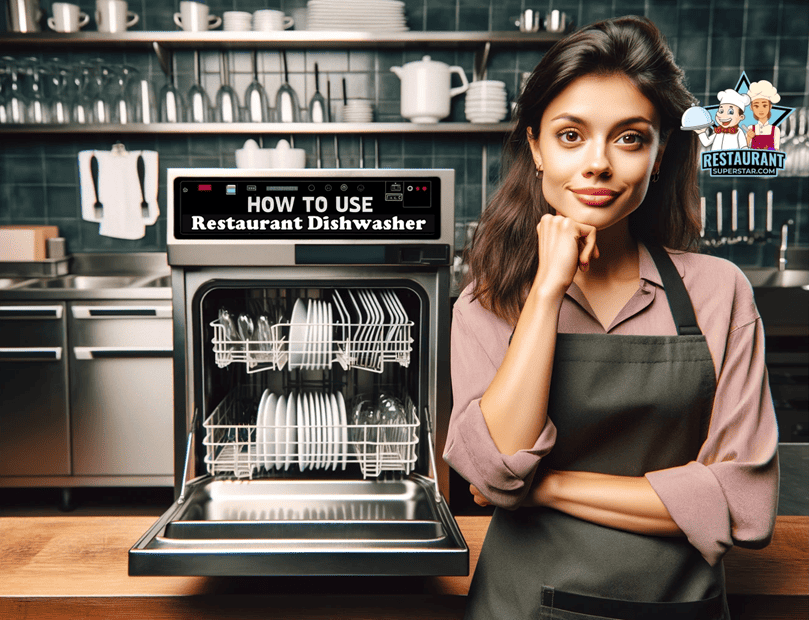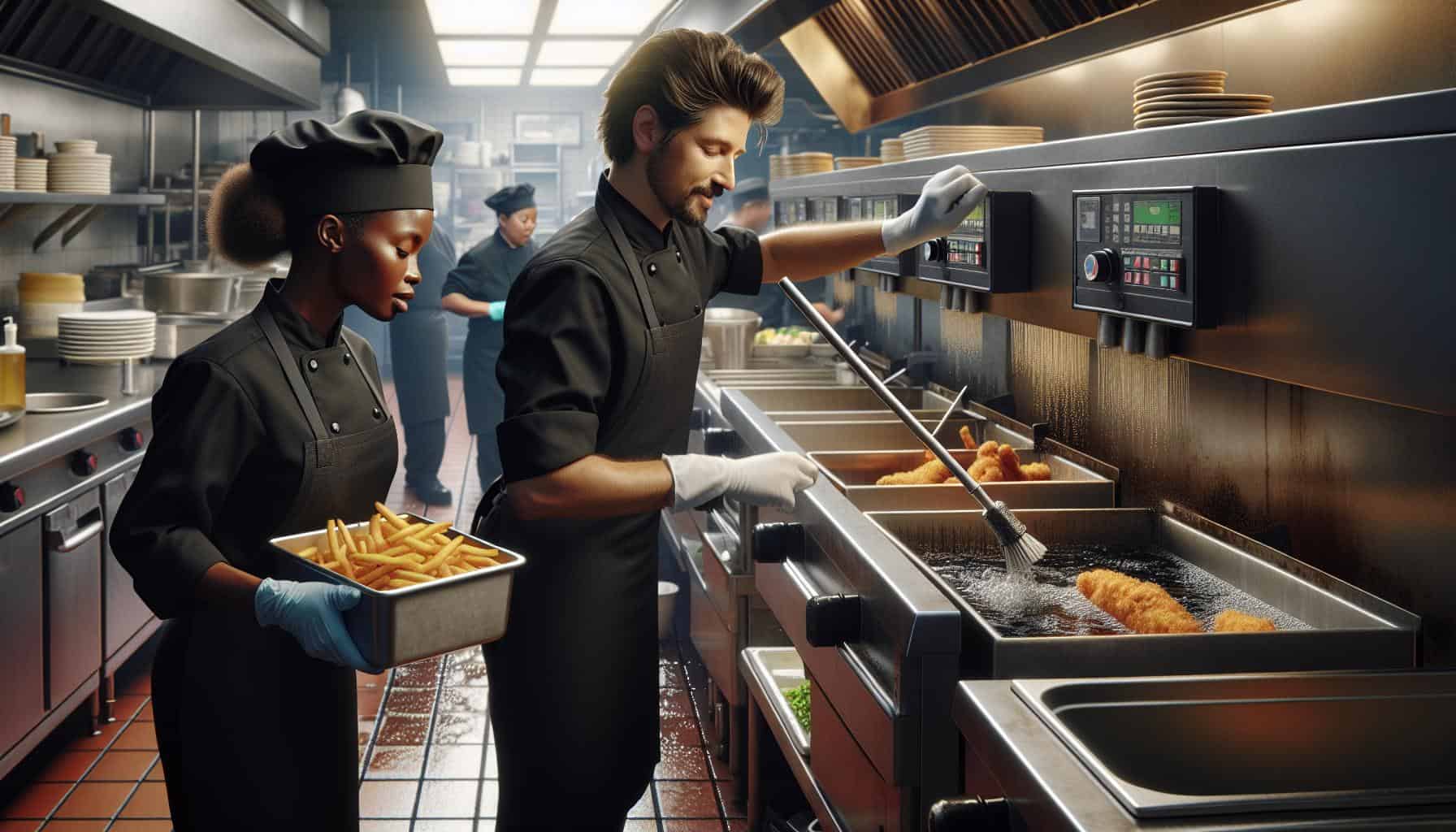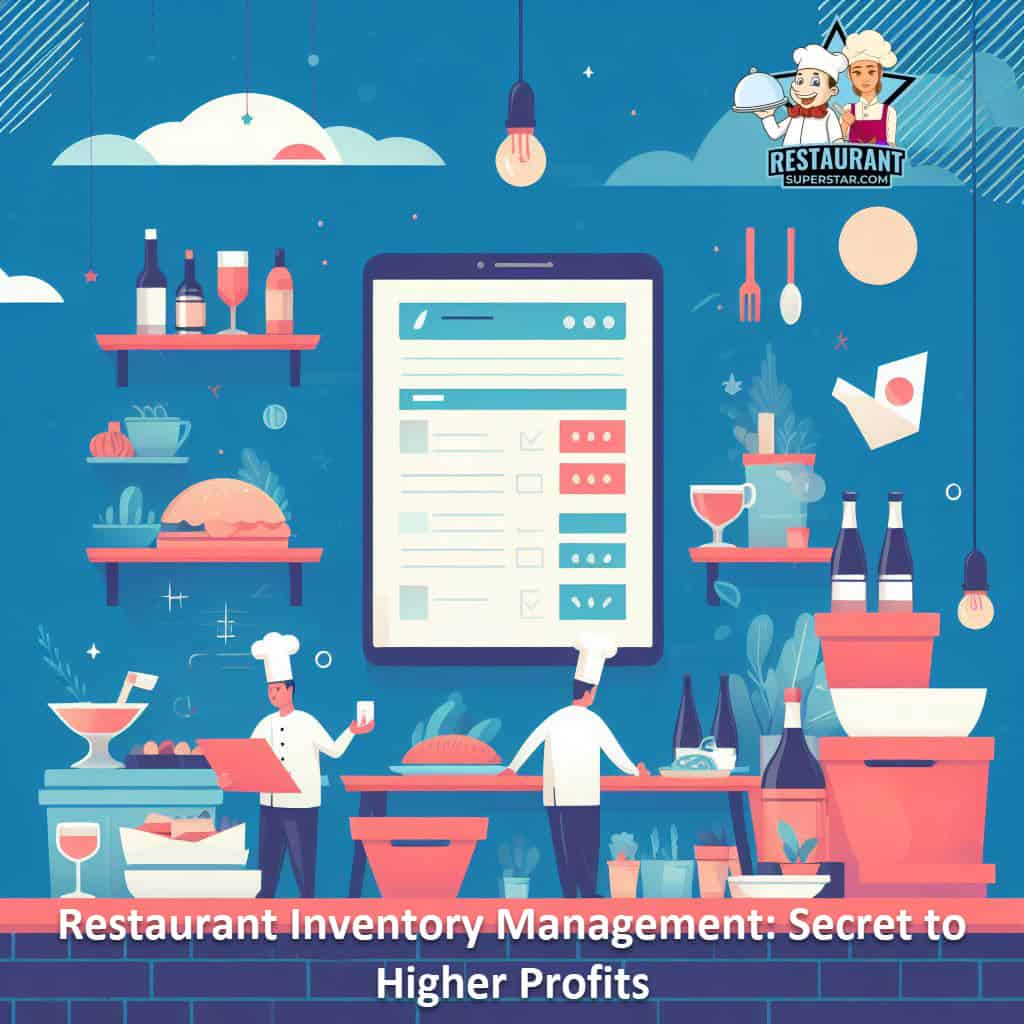How to Motivate Your Restaurant Staff – 31+ Great Tips

If you’re a restaurant owner looking for information on How to Motivate Your Restaurant Staff you’ve come to the correct spot. This article will go into great depth on that question. So, How do you Motivate Your Restaurant Staff? Let’s take a look.
How do you Motivate Your Restaurant Staff? Set a good example. Be respectful of their work life balance. Show you care. Prioritize Workplace Health. Recognize their accomplishments and give them the credit they deserve. Compensate with raises and bonuses. Treat them like family. Be a good person.
These and other restaurant staff Motivational Tips, Ideas and Strategies will be discussed in this article.
We’ve established the fact that keeping your restaurant workers engaged and motivated is crucial for overall productivity, so let’s talk about what you, as the restaurant owner, can do to achieve this. Try these suggestions to help your restaurant crew become more productive.
How to Motivate Your Restaurant Staff?
Team Building
Exercises that promote teamwork and motivation are beneficial for your restaurant staff. For instance, if you send your staff to a rock climbing gym where they must cooperate to reach the summit, their desire to support one another will foster bonds; it also works the same way for a restaurant business.
Work on Their Level
To demonstrate that you are not “above” your restaurant servers or the work, occasionally undertake the same duties as them. For instance, Cut a few lemons if you need to cut them in the kitchen. Your staff is more likely to remain productive if they see that you put in the same effort as they do.
Compensate with Bonuses and Raises
Offering a one-time annual bonus or an increase in hourly pay for each year an employee remains on staff as a team member is one approach to reward employee loyalty at your business.
Have a Custom Staff Menu to Spice it Up
Bring out the creativity in your team! Restaurant staff members are among the most creative people in the workforce, both in terms of their culinary expertise and their inventiveness. Encourage them to create unique dishes for the employees in the kitchen as one method to utilize that quality.
Employees may, for instance, transform a routine break at 3 o’clock in the afternoon into a brainstorming session for fresh flavors and innovations. These creations might be menu items that are “staff-only,” or even better, you could make it a contest. Each month, teams of employees may submit a fresh menu suggestion for the owner to consider. The winning entry is turned into a monthly special that visitors can order, with credit given to its creators.
Be Flexible
Being considerate of your staff’s responsibilities and passions outside the restaurant is essential because there is more to life than work. Encourage as harmonious a work-life balance as possible if a staff member is going through a difficult breakup or is in the middle of the trial season. If you can still locate the right coverage, strive to fulfill their request for time off if they need it.
Hiring Referral Compensation
One of the best ways to staff up your restaurant is to build a referral network. Your current team members are vested in hiring individuals who will reduce rather than increase the burden. Additionally, they’ll be more inclined to suggest applicants who will enhance your culture. When they are working with people they enjoy being around, employees are happier.
Prioritize Workplace Health
As we recover from the COVID outbreak, it makes sense that 47% of restaurant employees think hygiene is extremely important to them when performing their jobs.
Restaurant staff may find everything from dirty surfaces to a sick policy that doesn’t prevent sick employees from working a shift exceedingly unpleasant.
Empower Staff with Independent Shift Trading
When contemplating a shift swap, the last thing employees want to do is leave voicemails or emails requesting their manager to approve the move, only to find out 20 minutes into the shift that it wasn’t.
One advantage of working at a restaurant is the ability to trade shifts. A colleague at work has your back when an emergency prevents you from attending—and vice versa. These rules demonstrate the employers’ confidence in their staff, encouraging them to collaborate more closely.
Staff Acknowledgement
A simple “Hi” and “Thank you” can make a big difference.. You may personalize your interactions even further by spending some time getting to know a few important pieces of information about each of your employees (such as the names of their children or pets). However, sincerity is highly essential; when you express a sincere interest in your staff, you are essentially communicating to them how much you value and enjoy having them on the team.
Give Them The Appreciation They Crave
Akin to recognition, a lack of appreciation can cause low enthusiasm and the perception that the effort being done is not valued properly. Whether you use highlight reels at regular staff meetings or employee bonuses like bar tabs or spa vouchers for tired feet, when you share your individual and career accomplishments as a group, you help create a real sense of belonging.
Give Them Benefits and Time Off With Pay
Employees should feel regarded as people, not simply as workers. As much as part of who they are as a cook, host, or waiter, their physical well-being, personal hobbies, and family obligations matter.
Health insurance, paid time off, and other benefits are therefore essential. When employees or their families are ill or require some personal time, they provide a layer of stability. Sadly, only 31% of restaurants provide health insurance, which was a significant contributor to the employee exodus that eateries experienced throughout the pandemic.
Create Opportunities
Creating opportunities comes in two aspects – creating opportunities for new ideas and opinions, which leads to effective collaboration, and good brand recognition and reputation, which leads to a progressive career.
Asking for input and comments from your personnel is a good idea since they are the operation’s eyes and ears. By placing your staff’s diligent labor and insightful suggestions in a greater perspective, you can instill a sense of leadership.
Get Feedback From Your Employees
No matter the advice from this blog article you decide to implement in your restaurant, it’s critical to track the outcomes of your efforts to determine their efficacy. And what more reliable background information than your employees themselves can you get?
In reality, eateries using software that measures employee engagement have a 13 percent higher staff retention rate. This is because restaurants with insights on employee engagement are aware of opportunities to enhance their motivational strategies. They are aware of the areas of their jobs that provide employees the most and least satisfaction, the most engaged workers, and where to find employee feedback.
Be Clear About Company Values and Goals
When workers are aware of the goals they are pursuing, they feel a sense of meaning and purpose.
Not just a paycheck, no. Employees are more driven to finish an activity that has a purpose, such as enhancing the restaurant’s reputation or brightening a customer’s day. This drive results from the restaurant’s distinct mission, vision, and guiding principles. When taken as a whole, they give your staff something to aim for.
Restaurants of a larger size require a vision and a set of guiding principles that consistently hold true. If your business offers things like “service,” “customer-focus,” and “quality,” you’ll need to set a good example for your team by prioritizing these principles yourself. More than just words must be used to convey these principles and this vision, and when you set an example, your people will follow.
Use Technology That Your Staff Likes
You cannot mandate technology that drains your employees’ energy if you want them to feel involved.
It’s a formula for burnout and disaster if servers must enter orders into an outdated point-of-sale (POS) system, the chefs lack an intuitive kitchen display screen, and hosts lack a reservation program free of glitches. To help workers complete jobs more quickly and with fewer errors, your restaurant’s technology needs to be accessible and user-friendly.
Using the right tools is still important after the move. Employees can connect with you and each other within the same app, for instance, thanks to team communication software. Staff may enter each shift with a clear mind and a schedule if there is no back and forth across text, email, and in-person chats, which inspires them to produce their best work. If not, workers can arrive at work demotivated and exhausted before they complete even one order.
Provide Ongoing Career Development or Training
Everyone dislikes working with strangers. Teams that trust one another naturally perform better; thus, it is important for employees to feel at ease and comfortable with one another.
Unfortunately, it can be difficult for workers to establish those bonds naturally while working because shifts are demanding. For this reason, you should go above and beyond by planning team-building and staff-bonding activities. These could be as simple as weekly 30-minute pre-shift exercises or as costly as a quarterly staff appreciation party. Remember that because employees would be giving up their personal time at this period, they should be paid more than what the event is offering.
Develop Team Building Opportunities
Everyone dislikes working with strangers. Teams that trust one another typically perform better; thus, it is important for employees to feel at ease and comfortable with one another.
Unfortunately, it can be difficult for workers to establish those bonds naturally while working because shifts are demanding. For this reason, you should go above and beyond by planning team-building and staff-bonding activities.
Be Flexible With Employee Scheduling
According to 56% of the restaurant employees polled, more scheduling freedom, more scheduling freedom, according to 56% of the restaurant workers we polled, would enhance their satisfaction at work. This makes perfect sense — you won’t likely feel mentally equipped during your shift if your thoughts are on the party you’re skipping or the friend’s graduation you have to miss.
Give your staff some control over the structure of their schedules within limits. Consider letting employees select whether a fixed schedule, rotating schedule, or 9/80 schedule is the best fit for them while keeping in mind that not all requests can be accommodated.
Work on Yourself
Remember that whether you recognize it or not, you are always setting an example for your staff.As a consequence, be sure to increase your own output in the office. Asking for feedback from staff members can be intimidating, but doing so will enable you to proactively gather candid assessments of your abilities and areas for development.
Positivity is contagious at work, and if your staff sees you continue giving it, you’re all for the benefit of both them and your clients; they are more inclined to follow suit.
Daily and Weekly Competitions
Utilizing the competitive spirit of your restaurant staff can not only increase sales but also motivate your employees to recommend particular menu items and give excellent customer service. These inexpensive extras don’t require a significant financial outlay but are very useful.
Pre-Tasting New Menu Items
Suppose you’re introducing new things to the menu. In that case, it’s a good idea to perform a group pre-tasting before launch, as your restaurant workers will be the ones out on the floor selling your menu items. Additionally, now is a wonderful opportunity to gather preliminary feedback on the new meals so you can make any last-minute adjustments before serving them to guests.
Pre-tastings provide your team a better understanding of how to explain various foods and enable them to provide more reasonable recommendations to customers who want them. By being asked for their opinions, your staff will feel more appreciated as a part of the business, which will boost their desire to tell clients about these new goods.
Closed for Major Employee Life Events
When your concern for their lives extends outside the workplace, it inspires motivation in your workers. When a staff member experiences a significant life event, such as a wedding, the restaurant closes early to allow everyone to celebrate without having to worry about leaving someone behind to keep the business open at those times.
Consider how you can change your operating hours to accommodate these crucial times so that your team can concentrate on what is actually essential in life. Restaurant employees need work/life balance just like anybody else.
Give Them The Tools & Equipment They Need
Being constrained by outdated, awkward tools at work is the worst, especially when dealing with clients who prefer to come and go on their own schedules. The clients notice when your team is working using old equipment.
Frustrated employees may find it difficult to control their emotions in front of clients, which is bad for business. Major consequences include: Server tips are impacted by an outdated computer system that takes too long to generate tickets, and broken kitchen stoves result in longer cook times and subpar meals.
Monthly Sales Goals
A restaurant relies on goals to maintain profitability and achieve desired results. By practicing their upselling techniques, a waiter, for instance, may help the restaurant achieve its monthly objective of a 20% increase in app sales. They know that they assist the company in achieving its objectives every time a plate of chicken fingers is sent to the kitchen.
Daily Competitions
It is your responsibility as the restaurant manager to supervise these contests and guarantee that rewards are presented equitably. Additionally, you want to ensure that they aren’t deterring your team from the task at hand. You’ll learn which games and models suit your particular team the best as you experiment with various varieties.
Train Your Restaurant Staff
Have a robust staff orientation and training program in place for everyone who works in your restaurant. Signature recipes, specialized tools, and a certain method are all part of the training regimen and should not be disregarded.
The motivation of the restaurant personnel is also maintained through regular training sessions or open house events. They give them a confidence boost and a perspective on the wider picture. When your staff members can see the bigger picture of their duties within the restaurant, they feel more important and are motivated to perform better.
Ensure Good Working Conditions.
Thinking of how to keep your employees engaged and content in this situation? Giving your restaurant staff appropriately demarcated areas to unwind between shifts is a fantastic place to start. To prevent health risks and make it comfortable for the kitchen staff to prepare meals, the kitchens must also be well-ventilated.
Your employees will benefit from emotional and psychological assistance if you establish a healthy work environment and a joyful, inviting team. Simply paying attention is all that’s needed to keep your staff content.
Have Fixed Shifts And Overtime Policy
Establish defined shifts for the staff members of your restaurant, and make sure there is time for rest in between. Employees who are overworked and worn out won’t treat their consumers well.
Each hour that your staff works translate into direct revenue for the restaurant in the restaurant sector. To prevent any sentiments of dissatisfaction among your staff, it is essential to pay them for the extra hours they put in. Having a clear overtime policy for your personnel is therefore crucial.
Provide Wholesome Meals
It is bad that most eateries serve poor food to their staff members. You must ensure that the meals are of good and wholesome quality, even though it might not be possible to provide the employees the same food served to customers.
It is bad that most restaurants serve poor food to their staff members. You must ensure that the meals are of good and wholesome quality, even though it might not be possible to provide the employees the same food served to customers.
Incentive Program
Create an incentive program to encourage and maintain the happiness and productivity of your restaurant staff. Employees are encouraged to perform better at work via rewards and recognition. The motivation of the restaurant personnel is increased by offering some financial compensation.
Programs like “Star Server,” “Employee of the Month,” etc., raise the performer’s morale and inspire other staff members to perform well. Develop reward schemes for teams as well.
Have A Clear Hierarchy
Your restaurant personnel will better grasp their future in the restaurant if there is a defined hierarchy. There is sometimes a lack of passion and motivation in entry-level positions in restaurants. Let your personnel know they can advance to senior positions inside the restaurant with strong performance.
Have a Longevity Bonus
The high staff attrition rate is one of the biggest issues facing the restaurant industry. The rate of personnel turnover in restaurants is incredibly high, especially for junior positions. As a result, it makes sense to reward your restaurant personnel for staying with the company. Offer your employees a financial incentive if they stay longer than a predetermined amount of time.
Set Clear, Defined Goals
Without clearly outlining your expectations, asking too much of your staff would be unreasonable. Consequently, it is crucial to establish goals for your workers. Your restaurant crew will work more effectively and remain focused if the goals are clearly established. Employees typically perform much better when they clearly understand what is expected of them and their tasks.
Frequently Asked Questions ( FAQS)
How do Restaurants Motivate Servers?
The motivation of the restaurant personnel is increased by offering some financial compensation. Programs like “Star Server,” “Employee of the Month,” etc., raise the performer’s morale and inspire other staff members to perform well. Develop reward schemes for teams as well.
How do you motivate a lazy employee?
Help them make a list of the advantages and disadvantages of the change. Give them praise for any improvements they do make. To encourage them to have confidence in themselves, cite their prior successes. Give them credit for attempting even if they fail if they try something.
How do restaurants retain staff?
Re-recruitment goes hand in hand with recruiting and retention. This means that management should exhibit attention and enthusiasm during every shift, express thanks, and let teams know why and how their job matters to maintain team members’ confidence and engagement.
How do you motivate your team in rush hour?
Project a positive attitude. Check your own emotional energy as a manager, advises Lai, to start. You cannot stand in front of your team and be a confident leader if you feel pressured, concerned, apprehensive, or frustrated about a project. You must be “interested, motivated, and emotionally invested in” leading. “Reflect on why the work matters” to begin with.
How do you reward a waiter?
Even if it won’t cost much, free supper at the restaurant the waiter works at, or a gift certificate to a nearby coffee shop will be sufficient incentives to boost restaurant sales. Keeping the prize a secret might encourage the servers to both learn what it is and win it.
Why are well-motivated employees important for the restaurant?
A motivated workforce has various benefits, including decreased absenteeism, employee retention, low staff turnover rates, enhanced management-employee relationships, higher worker performance, improved quality, and greater customer service.
How do you motivate a bar staff?
Allow your bartenders to guide the customer toward a risk-free option, such as: Trust me, I think this drink will be exactly up your alley — our new cocktail is excellent, and if you don’t like it, I’ll create you something different, the bartender can remark to a customer. The risk to the customer is eliminated with this type of win-win arrangement.
What do you say to motivate your team?
You say, thank you, what do you think? That’s great! Can I help?
Move about and socialize. This is because it gives us more energy and alertness and maintains our physical and mental health. All of this maintains motivation at its peak. While motivating your staff to stay active is a great place to start, you should also take advantage of this opportunity to get to know them.
How do you empower employees?
By giving authority and decision-making to others, sharing information with them, and soliciting their feedback, many leaders today attempt to empower their workforce. But according to our most current research, this management approach inspires particular kinds of performance and particular kinds of workers the best.
What motivates people to work hard?
Money, recognition, power, passion, and significance are some of the things that motivate people in their working lives. These elements may significantly impact productivity, and a worker may rely on one or more of these components to develop a love for their job.
What are motivational techniques?
Whether internal or external, motivating factors can increase output, job satisfaction, and valuable project contributions.
Conclusion
We bet you’d start to see a shift in the attitudes of your team members at work even if you only applied one of the motivational strategies presented here. Give your staff the respect they deserve because they are essential to your company’s success.
Jeff Smith is a Restaurant Consultant with over 20 years of hospitality experience ranging from server to owner and general manager. He focuses on Restaurant POS technology as well as restaurant marketing. Make sure to check out our world famous restaurant resources resources page for a comprehensive offering of hand picked resources and tools to help your business. You can also check out some of our other restaurant business articles.




